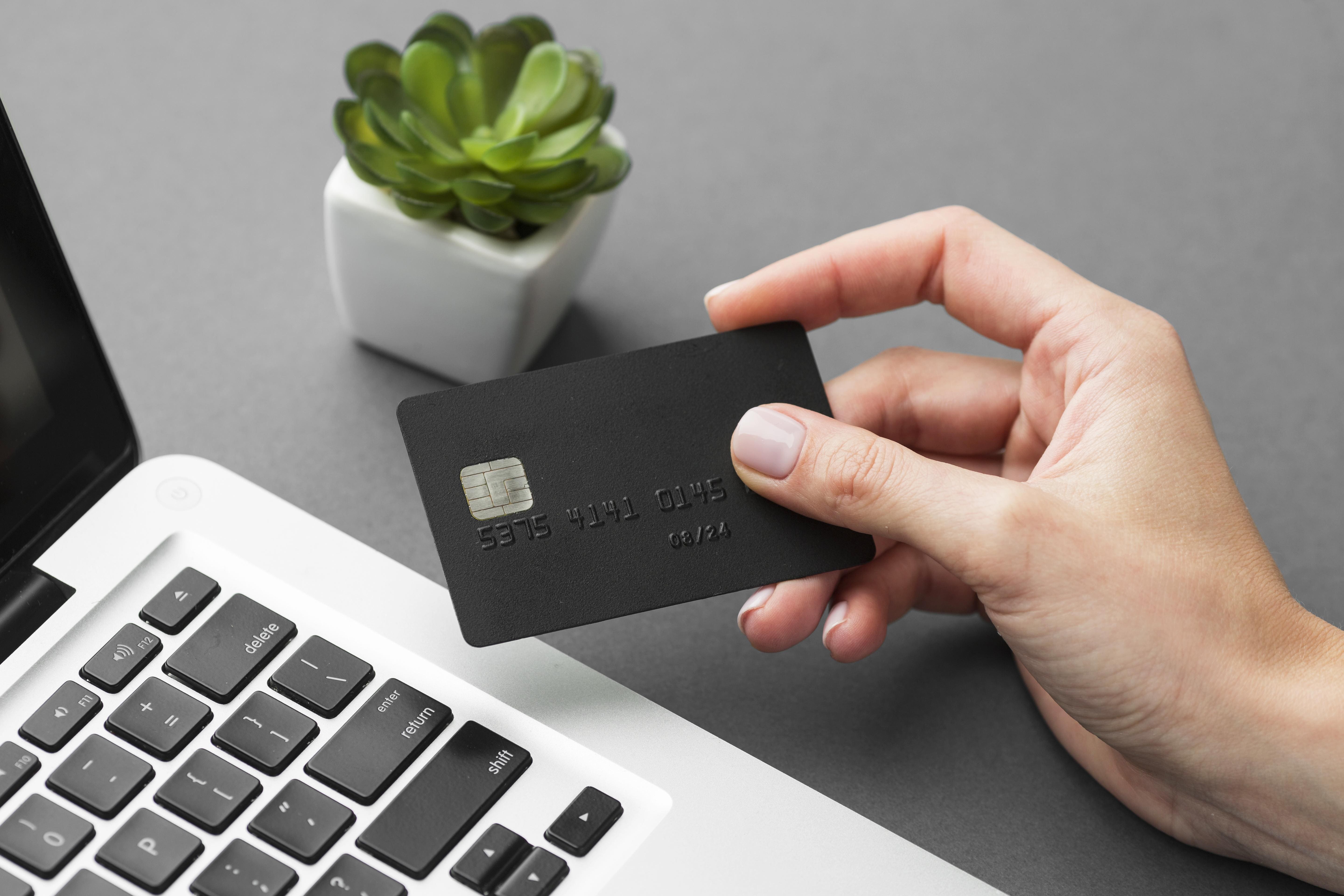

Bank Cards Conversation
Philippines (EN) | 01 Oct 2023 - 31 Mar 2024
Social media users share safety comparisons of credit vs debit cards as well as blocking benefits and precautions against sharing bank details.

Share of Voice Bank Cards
N=7.6k
This chart shows the number of posts from the main search query that mentions specific bank cards and the % of conversations related to each type of card. Shares/Reposts are included. The % change in volumes is compared to the previous six months.
Vigilance and Prevention Techniques
-
Safety Comparison: Credit Cards vs. Debit Cards
Discussions favored credit cards for safety, as they feel it is easier to dispute charges with credit cards. Fixing scams with debit cards was seen as less straightforward, especially when linked to savings accounts.
-
Benefits of immediately blocking cards
Forum users discussed the benefits of immediately blocking debit and credit cards after unauthorized transactions.
-
Warnings against sharing bank details by phone
Forum users discussing identity theft were warned against sharing bank details over the phone and advised to contact banks directly if they receive suspicious requests for personal information.
-
Misuse of credit cards by friends
People discussed the importance of not trusting friends with their credit cards and shared stories of friends misusing them.
Bank Cards - Fraud Types Conversation
Philippines (EN) | 01 Oct 2023 - 31 Mar 2024
Emerging scams discussed includes health insurance data fraud, booking site scams, Facebook phishing scams as well as identity theft scams on social media.

Share of Voice Bank Cards - Fraud Types
N=1.4k
This chart shows the number of posts from the main search query that mentions specific fraud types within the bank cards conversation and the % of conversations related to each type of fraud. Shares/Reposts are included. The % change in volumes is compared to the previous six months.
Scam Types
-
Health insurance user data fraud
A leading health insurance company reported a cyber attack that resulted in the theft of customers' details, including credit card information.
-
Booking site scams
Many victims fell prey to holiday scams where fake online booking sites and travel agencies took their money without making reservations and then deleted their social media handles after the fraud.
-
Phishing scams on Facebook
Form users discussed Facebook phishing scams where scammers posed as organizations on deceptive pages, offering fake incentives to steal credit card information. They debated victim susceptibility and punishment severity for the scammers.
-
Social Media Scams: Exploiting emotional vulnerability
Emergency scams involve hackers taking over a victim’s social media account to solicit money from the victim's family and friends for a fake emergency.
Bank Cards Conversation Over Time, Oct’23 to Mar’24
Cyber attack on health insurance company, card-blocking safety feature and discussions about non-digital security drove peaks in consumer conversation.
Chart displays daily conversation volumes (including shares/reposts) on ‘Bank cards’ category query. This visualisation is used to identify key stories (either from the news or social media) that drove conversations and consumer interest.

Non-card Services Conversation
Philippines (EN) | 01 Oct 2023 - 31 Mar 2024
Commendations on bank’s online fraud initiatives which includes awareness campaign and OTP introduction and discussions concerning sophisticated phishing scams as well as online fraud prevention.

Share of Voice Non-card Services
N=9.6k
This chart shows the number of posts from the main search query that mentions specific non-card services and the % of conversations related to each type of service. Shares/Reposts are included. The % change in volumes is compared to the previous six months.
** Bank transfer refers to offline banking
Vigilance and Prevention Techniques
-
Banks raise awareness for preventing online fraud
A local bank's Christmas campaign warned consumers about online scams, advising them not to click on links in messages from untrusted sources in SMS, messenger apps, emails and social media.
-
Sophisticated phishing scams with official-looking emails
Forum users discussed scammers using sophisticated phishing methods such as professional-looking emails with official-looking PDF files that solicit personal details and advised not to share personal details without contacting the bank.
-
Blocking online transactions for non-tech-savvy individuals
People discussed how non-tech-savvy individuals should block all online transactions to prevent themselves from online fraud.
-
Praise for banks' OTP introduction to prevent online fraud
Forum users discussed local banks’ introduction of OTP to prevent online fraud and praised the steps taken by banks for fraud prevention.
Non-card Services - Fraud Types Conversation
Philippines (EN) | 01 Oct 2023 - 31 Mar 2024
Conversations centered on sophisticated tactics of cyber attacks, fake bank website on search engines, vishing (voice call phishing) scams and fraud due to susceptibility of older generation to online scams.

Share of Voice Non-card Services - Fraud Types
N=1.0k
This chart shows the number of posts from the main search query that mentions specific fraud types within the non-card services conversation and the % of conversations related to each type of fraud. Shares/Reposts are included. The % change in volumes is compared to the previous six months.
Scam Types
-
Sophisticated social engineering tactics by cybercriminals
Cybercriminals are deploying sophisticated social engineering tactics to lure individuals on some pretext and convince them to download malicious apps that steal personal data.
-
Victims of vishing scams share sensitive information
Many users fell victim to “vishing” (voice call phishing) and shared sensitive information such as bank account details and passwords with the scammers resulting in fraud.
-
Fake bank websites in search ads lead to fraud
Scammers' fake bank websites appear in search engine ads, leading to malicious sites and resulting in financial fraud.
-
Scam exploits older generation's online security knowledge gap
The older generation's lack of online security understanding leads to scams, as one mother’s checking account was defrauded for 300K pesos due to online banking fraud.
Non-card Services Conversation Over Time, Oct’23 To Mar’24
Conversation peaks revolved around advice for digital security and banks' efforts to improve user experience and safety.
Chart displays daily conversation volumes (including shares/reposts) on ‘Non-card services’ category query. This visualisation is used to identify key stories (either from the news or social media) that drove conversations and consumer interest.
The Philippines Frauds/Scams Related to Cyber Attacks, Oct’23 to Mar’24
Philippines (EN) | 01 Oct 2023 - 31 Mar 2024
Concerns about cyber attacks on banking customers prompted analysis of cyber security threats in The Philippines’ banking industry.

Cyber Attack Events on banks in The Philippines¹
Cyber Attack Methods on banks¹
- Mastercard Cyber Insights Data. Based on data for the period Oct 2023 – Mar 2024
- Malware performs undesirable operations such as data theft or some other type of computer compromise. Some of the main types of malware include trojans, viruses, worms and spyware.
- Attack patterns within this category focus on the manipulation and exploitation of people in the interpersonal level. Attack examples are Bribery, Elicitation, Extortion and Influence.
- Attack patterns within this category focus on the manipulation and exploitation of people using e-mails.
- Others include ransomware, web phishing, injection, command and control, denial of service, persistence techniques etc.
Cyber attacks dominated discussions as a prevalent type of fraud
-
There were a total of 362 attacks in Oct 2023- Mar 2024 on banks in The Philippines, 63% of which were executed through malware, pretexting and email phishing techniques.
-
Out of all the fraud-type discussions for Bank Cards and Non-Card services, ~ 62% were related to cyber attacks (45% in bank cards, 85% in non-card services). 82% of cyber attack discussions under bank card services were associated with credit cards, while 40% of cyber attack discussions under non-bank card services were related to Online Banking.
-
20% of the cyber attacks are found within online news and are primarily associated with attacks on banking institutions and infrastructure. These attacks often capture fraud that boasts high levels of sophistication, through compromising or impersonating organizations and businesses.

Best practices that can be deployed by banks to enhance cyber controls:
- Establish a non-negotiable cyber security culture by strengthening awareness and training program.
- Collect, monitor and analyze information to build cyber intelligence to make informed data-backed security decisions.
- Establish a program to allow you to manage and monitor your critical third parties to prevent their risk becoming your risk.
- Effective management of patches and vulnerabilities.














